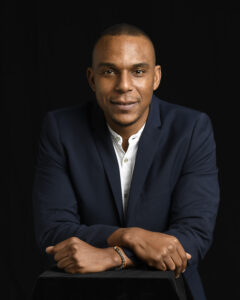ORANJESTAD/HILVERSUM – The Dutch Association of Journalists (NVJ) is extremely concerned about the curfew imposed on Aruba, which is also applicable to journalists. Wensly Francisco, member of the board for the NVJ, says that the NVJ wants to provide Aruban journalists with emergency press passes.
The Aruban press protested the decision on Friday and sent letters to the NVJ, the police and the Office for the Public Prosecutor. Aruban prime minister Evelyn Wever-Croes does not believe that the measures are a limitation of the freedom of press.
According to the prime minister, the police will provide the press with information between 9 PM and 3 AM. “Journalists can work from home”, according to Wever-Croes.
The NVJ warns the prime minister in the letter that: “journalists play a crucial role in providing information, especially during the corona crisis.”
Corona measuresThe curfew goes into effect on Saturday and is one of the measures implemented to reduce the spread of the coronavirus. Individuals are not allowed to leave their homes between 9 PM and 6 AM. Aruba currently has eight corona cases. |
Journalists are part of the sectors and professions which are considered crucial in the Netherlands and the government takes the special positon the of the press into consideration. “We implore you to ensure this special position as soon as possible for Aruba”, says the letter.
No press passes
Journalists need to be able to identify themselves as professionals with a press pass. An official press pass is not available on Aruba through a journalist’s association.
Francisco tells Caribbean Network that sending press passes to all the islands is going to be a logistical nightmare. “That’s why journalists on the islands, who work for a reputable media company, can apply for a temporary digital press pass. These press passes can be printed or saved on a mobile phone.”

Wensly Francisco manages amongst other things the Caribbean affairs portfolio for the NVJ
Journalists on the islands of the Dutch Kingdom are not members of the NVJ. An association such as the NVJ which stands up for the rights of the press, does not exist on the islands. That’s why Francisco has been fighting to make it possible for journalists on the islands to become a member of the NVJ since he became a board member. This includes benefits such as press passes and educational activities.
“It’s the intention that journalists on the islands receive a mentorship from the NVJ”, says Francisco.
‘Kingdom-wide journalism’
It is not the first time that Francisco has been making a ruckus about the less than ideal freedom of the press on the islands. “When I speak to journalists on my visits to the islands, I hear stories that they are hindered in their work. That politicians deny them access and that they are threatened whilst doing their jobs. It’s time to start speaking about Kingdom-wide journalism.”



